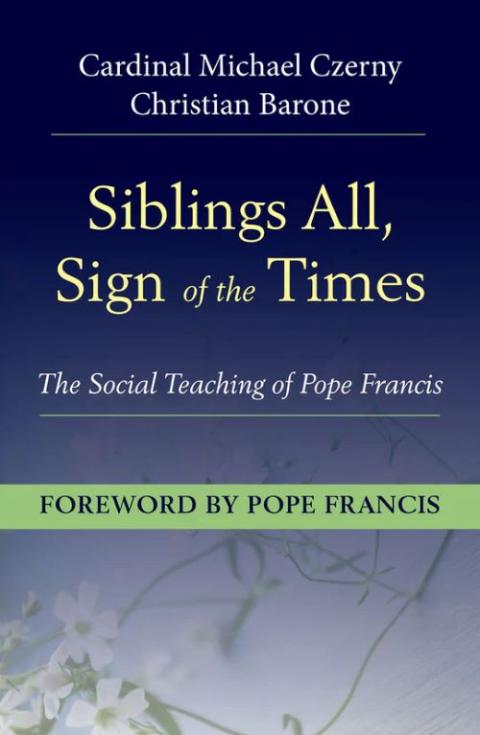A new book, Siblings All, Sign of the Times: The Social Teaching of Pope Francis is an instant classic and must-read for anyone interested in Catholic social teaching. Not only does it do a better job explaining the social magisterium of the Holy Father than anything yet published in English, it also touches on foundational theological issues that are too often overlooked and unexplored.
Siblings All, Sign of the Times is co-authored by Jesuit Cardinal Michael Czerny, the prefect of the Dicastery for Integral Human Development, and Fr. Christian Barone, who teaches at Rome's Gregorian University. Books authored by prominent churchmen, including cardinals, are not known for being provocative. They tend to be cautious, steering away from controversy. There is nothing reckless in these pages, to be sure, but the discussions are frank and forthright. And they repeatedly situate the issues of social ethics within the broader theological landscape, something too few ethicists undertake.
So, for example, in the first chapter's section on "The Church-world relationship and Vatican II's 'anthropological turn,' " the authors start by explicating the Constitution on the Church and its critics.
In Lumen Gentium, the council introspectively examined the mystery of the Church, highlighting its communal and eschatological nature (LG 8-9, 48-21). This ecclesiological reflection, with its markedly doctrinal character, finds its natural complement in Gaudium et Spes (GS 2, 32, 40): from the Church as communion, constituted by the People of God, flows the dynamism of its mission in the world (GS 3).
They proceed to consider criticisms of Gaudium et Spes.
Not a few criticisms were raised...accusing this conciliar document of producing a detrimental reduction of the universal validity of the Gospel message. Critics also point to the uneven way that the various topics are treated as evidence that the Pastoral Constitution never managed to duly integrate either the richness of the ecclesiological reflection proposed by Lumen Gentium or the sacramental perspective developed by Sacrosanctum Concilium.
No attempt is made to downplay the gravity of the criticisms. Their answer to the critics, however, is also at hand. "Yet it was precisely the methodological choice to describe the phenomena of contemporary reality that constituted the progress made by Gaudium et Spes in comparison with previous socio-theological reflection." A few pages later, they continue to flesh out the significance of this methodology:
Gaudium et Spes applies the law of gradual progress and growing understanding of the truth to the human awareness that lets itself be increasingly enlightened by the mystery of Christ. At the same time, this same law of gradualness and progressive understanding of the truth is applied to the ecclesial mission of proclaiming the Gospel: listening, understanding, and interpreting the treasures hidden in cultures and the progress of science (GS 44) to test them against the Word of God.
Here are the seeds of that dynamic understanding of the church's mission to which Pope Francis is always calling the church.
And, a couple of pages later, Czerny and Barone continue to detail the significance of Gaudium et Spes, writing,
The real novelty of Gaudium et Spes consists in presenting dialogue with the world as an exercise of self-awareness in the Church's identity. This dialogue is not aimed exclusively at making the proclamation of the Gospel more effective. Rather, it is necessary for grasping the signs of Christ's presence that emerge from contemporary history. Therefore, dialoguing with the world is not a question of carrying out a strategic marketing operation, or of embellishing the Gospel in order to capture the widest margin of consensus, even at the risk of compromising the message. On the contrary, being in dialogue with the world is a question of supporting the gradual and organic growth of the Church in the understanding of divine Revelation.

In a preface to "Siblings All, Sign of the Times," Pope Francis said that, like many Latin American Catholics of his time, the Second Vatican Council shaped his theological and pastoral vision. (Courtesy of Orbis Books)
Those are some key insights about a Vatican II document that had seemed somewhat tired in recent years, even a little ragged, like it had seen better days. I might add, that is also some fine writing.
No comments:
Post a Comment